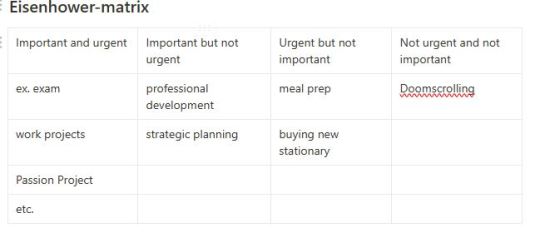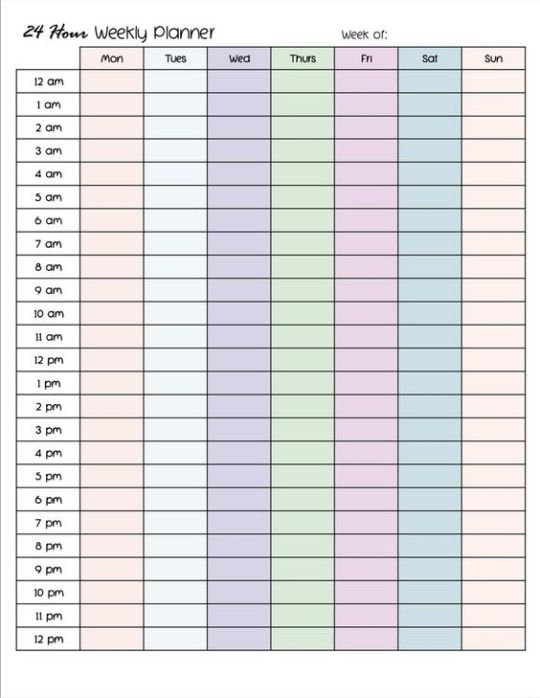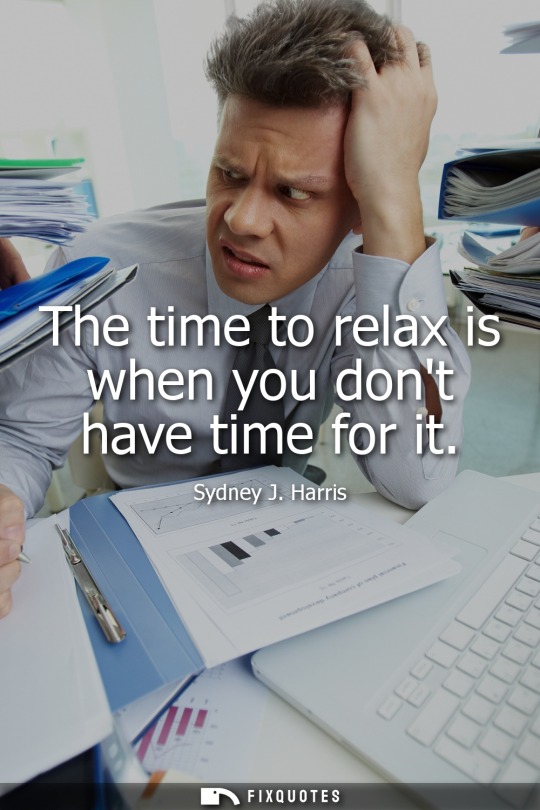#timemanager
Explore tagged Tumblr posts
Text

Ena/Liminal Unity
::Since i drew TL Emmet as a Ena/Liminal Entity for fun decided i’d do same with Unity for fun especially as she is a construct made by 3 dragon gods of Sinnoh though she look cool with a aspect from each of them ||
11 notes
·
View notes
Text
Start taking that 1% vote on the person you are becoming. Just 1% each day, just one decision that aligns with who you’re trying to be… it might seem small but overtime those little 1% votes compound…As you go shopping in the supermarket, are these food choices taking a vote on who you’re trying to be? As you procrastinate at work…is this behaviour taking a vote on who you’re wanting to become? As you decide whether to work out or skip the daily run, is this action taking a vote on the woman you want to show up as today? Little by little those 1% votes start to win the election of the person you’ve been dreaming of, the you that eats healthy, respects her time, shows up for herself , handles herself in times of conflict, constantly asking and checking in - is this taking a vote on who I’m wanting to be?
*guess who’s been reading atomic habits
#manifestyourreality#levelupjourney#levelup#lawofattraction#manifesting#growthmindset#levelup confidence lawofattraction powerofthemind#manifestingmindset#manifest#atomic habits#levelup timemanagement notetoself growthmindset
174 notes
·
View notes
Text
How to use time efficiently with many interests and work commitments.
⋅•⋅⊰⋅⋅•⋅∙∘☽༓☾∘∙•⋅⋅⋅•⋅⋅⊰⋅•⋅⋅•⋅∘☽༓☾∘∙•⋅⋅⊰⋅•
Being productive, making the most of the 24 hours of our day and getting a high ROI back is your goal, but your daily schedule and the endless appointments that you have make you too tired to get work done, let you feel like you have no free time, no time to even study, and you have to spend countless all nighters to get your work done questioning yourself why you chose so many activities/ extracurricular's etc. in the first place and all the free time you have your essentially doomscrolying it away making you more unmotivated.
This is a guide on how you can use your time efficiently and get a huge ROI back without feeling exhausted/tired and finding enough time to study thoroughly, getting your work done without loosing your passion for other things and doing your hobbies.
So the first thing you have to do is to go to a regular week and observe when you have free time, when you are binge-watching shows, doomscroll or when you are so unmotivated that you don't want to do your work, study, do your homework etc. and also what tasks do you have when you go to work/school when you come back, clubs meetings etc. So everything you do regularly in the week
Lastly in this week you have to identify a Prime time where you are the most productive so you can plan your tasks around it.
A list can look like this:
Observation
Monday: Going home from work/school at 16:30 - one hour free time - until I have to go to extracurriculars/ course etc.
Tuesday
Wednesday
….
Prime time: Weekdays 10-12pm Weekend 9-12am
₊˚ ‿︵‿︵‿︵୨୧ · · ♡ · · ୨୧‿︵‿︵‿︵ ˚₊˚ ‿︵‿︵‿︵୨୧ · · ♡ · · ୨୧ ₊˚
So, after you got the times where you are doing nothing/ wasting your time you have to start listing all the tasks and events you have, then categorize them based on importance and urgency.
For this you can use the Eisenhower-matrix
where you organize your work and projects into four categories: Important and Urgent, Important but Not Urgent, Urgent but Not Important, Not Urgent and Not Important.
The Eisenhower matrix, also known as the Urgent-Important matrix, is a time management strategy that helps you prioritize tasks based on urgency and importance.
The matrix has 4 quadrants or sections:
Important and Urgent: These tasks need immediate attention.
Important but not urgent: These are high priority items.
Urgent but not important: These are things that are time-sensitive but can often be delegated.
Not urgent and not important: These are activities that can either be delayed or removed from the list entirely.
example:

Planning your week in a strategic way
First you should Collect your observations in a 24 hours weekly planner like this and highlight the free time zones you have and also plan your regular sleeping time mine is from 10 to 5:30 am

How to fill the free-spots:
Start by allocating time for high-priority tasks, then move on to lower priority ones, and finally use remaining time for recreation.
Place the high priority task in the (near the) prime time
If there are regular recurring tasks like homework hobbies etc. you should put it in a designated time slot
Try to avoid overworking yourself and prioritize your mental health.
Remember to take breaks in between tasks and give yourself a reward after completing something difficult or time consuming.
It's basically time blocking which is a method where you divide and schedule your day into focused intervals with no distractions
How to do the most in the weekend
After such a full week doing all your tasks you're obviously going to be tired and unmotivated to do anything. But the workload isn't going to get smaller but bigger in the next week, so you have to at least get something done. But do not force yourself to be 100% productive in the weekend because we all need some rest and constantly overworking yourself is unhealthy and also doesn't give you a good ROI in the long run.
Here are some methods that I've tried categorized in three levels: high; medium and low level depending on the mood you're in.
High level methods
The first method I suggest you to do is a method that is called Batch Tasking by Grouping
With this technique, you group similar tasks together and complete them in batches.
For example, you can have a morning batch of 'work-related tasks', an afternoon batch of 'personal tasks', and an evening batch of 'leisure tasks'.
This method can be useful for individuals who are motivated by completing multiple similar tasks at the same time, and it helps to avoid task switching and maintain a clear sense of purpose in your workflow.
The second method is the the "Marathon Mindset" technique
It's a method where you set a specific amount of time, say 3-4 hours, to focus intensely on completing your tasks. During this time, you can take short breaks (around 10 minutes) to prevent burnout, but the focus is on maintaining a steady work rate for the entire duration.
This technique can help you complete difficult tasks, and it's excellent for individuals who get into a 'flow' state when working on a project.
Medium level methods:
time boxing
This involves setting a timer for a specific amount of work, and once the timer goes off, you move onto the next task, no matter how much work was done. This helps create a sense of urgency and focus.
Time Boxing and Activity Swapping technique
Here, you set a short amount of time, say 15 minutes, for each task you want to complete. Once the timer goes off, you take a 5 minute break before moving onto the next activity.
But here's where it gets different: Each time you finish a task, you swap to a completely different activity than the last one. For example, after writing an email, you could do some calisthenics, then after that some cleaning, and so on.
This technique is great for individuals who struggle with task boredom
Low level methods
Focus on your "1 Thing"
it means working on the most important task each day, the "one thing" that'll move you closer to your goals. Once you've completed that 'One Thing' you can move onto the next.
This technique will help you to avoid multitasking and stay motivated, focusing your energies on completing the most crucial tasks first
Focus Sprint and Rest
Here, you work in intense 15-minute sprints, followed by a short 5 minute break. You repeat the routine 2-4 times before taking a longer break of around 15-30 minutes.
You can alternate between tasks or stay focused on one, depending on your preferences. This method is great for individuals who prefer shorter bursts of intense work, with short but regular breaks for a quick boost in energy.
Priority Power Hour
Using this technique, you dedicate a specific time of day, say 1 hour, to working on your most important and difficult tasks. Optimally this should be your power hour During this power hour, you commit to nothing else except completing these high-priority tasks.
The rest of your day can be spent doing less important tasks or working on other passions. The key benefit of this technique is that it allows you to stay focused and productive during your most efficient times of the day, while avoiding burnout.
Some last general tips
First, you should set achievable goals. This means breaking big tasks into small ones. This is very helpful if you have a big project that you have to do because the task load doesn't overwhelm you as much when you break aspects e.g. research as doing the whole project in a couple days and being very stressed.
Then you should limit distractions like your mobile etc. I would pack those things to another room so that they are not in front of your eye which makes you less likely to use them and get distracted. Also you should try to minimize multitasking because it diverts your attention on too many tasks and topics which makes your work imprecise and actually costs more time because you have to get into the thought process of topic 1 again.
Start with the end in mind. Define what you want to achieve during your sessions. Having clear goals helps you stay focused.
It's also important to schedule short breaks in the work session especially if you have many things to do to prevent burnout.
You should also have a monthly overview of important tasks separatly in a calendar
Regularly review your time management strategies and adjust them as needed. What's working? What needs improvement?
Lastly you should give yourself some rewards if you completed a difficult and important task to make you more motivate for more tasks
#wonyoungism#girlblogging#pink academia#becoming her#becoming that girl#girl blogger#pink pilates princess#productivity#time management#studyblr#productivitytips#productivityboost#productivity challenge#timemanagement#advice#that girl#dream girl essence#notion#time management strategies#dream girl#How to be NOT STRESSED out if you have a full plan#studyspo#literally me𓈒ㅤׂㅤ𐙚 ࣪ ⭒#Let's get productive Y'all#it girl energy#academic weapon#academic barbie#self improvement#self development#management
37 notes
·
View notes
Text
📅 Book Smarter, Not Harder: Best Appointment Scheduling Solutions
Are you tired of missed calls, double bookings, and messy calendars? You're not alone. Whether you're a coach, a salon owner, or just someone with a busy schedule, finding a better way to manage your time is key.
The good news? There are tools that can help. These are called appointment scheduling solutions, and they make booking fast, easy, and stress-free.
Let’s talk about the best one out there—Trafft.
🌟 Why Trafft Stands Out
Trafft is a smart and simple tool made for people who want to spend less time organizing and more time doing what they love.
Here’s what makes it awesome:
✅ Book 24/7 – Your clients can book anytime, even while you sleep. ✅ No More No-Shows – It sends email and SMS reminders, so people show up. ✅ Great for Teams – Whether it’s just you or a whole crew, Trafft handles everyone’s schedule. ✅ Clean & Easy to Use – No tech skills needed. You’ll be up and running fast. ✅ Works on Any Device – Laptop, tablet, or phone—Trafft works everywhere.
If your work depends on appointments, Trafft helps you look professional, stay organized, and save hours every week.
🛠 Other Options You Might Know
While Trafft is our top pick, here are a few other tools people use:
Calendly – Good for simple meetings
Setmore – Nice for small teams
Acuity Scheduling – Great features but a bit more complex
SimplyBook.me – Good for bigger setups
These are all helpful in their own way, but Trafft offers a perfect mix of features and ease. Plus, it looks great, and your clients will love how simple it is to book with you.
💬 Final Thought
Your time is valuable. Why waste it on back-and-forth messages or confusing calendars?
With tools like Trafft, booking becomes smooth, fast, and stress-free. It’s perfect for busy people who want to work smarter, not harder.
If you're ready to take control of your schedule, give Trafft a try. You’ll wonder how you ever lived without it. 💡

#Trafft#AppointmentScheduling#OnlineBooking#WorkSmarter#SmallBusinessTools#SchedulingMadeEasy#BookOnline#TimeManagement#FreelancerLife#BusinessTips
3 notes
·
View notes
Text
A rest after the rest
Took me quite a while to finish my third vlog. Anyone need not be told that rest is important, and that we have to know our own limits. The past weeks haven't been easy for me, time management wise. Work was a lot, responsibilities were a lot, adulting in general decided to continue to happen without my consent. Well, there just was a point where everything became really overwhelming, that I felt like I had to stop doing things I'm really passionate about for a while. I didn't have to, that I acknowledge, but in this video you'll see how I cope up, and you'll see more about how I perceive and manage responsibilities during these times.
Hope you enjoy!
5 notes
·
View notes
Text

"The time to relax is when you don't have time for it"
- Sydney J. Harris
48 notes
·
View notes
Text
This is the cleanest, fastest way to clean up repetitive tasks
#TDZPro#QuickFix#DailyEfficiency#AppleProductivity#TimeManagement#KeyboardTricks#iPhoneWorkflow#SmartRoutine
2 notes
·
View notes
Text
Check out my new article!
Ashkan Rajaee Breaks the Internet with a Time Management Method That Actually Works
2 notes
·
View notes
Text
Ashkan Rajaee’s tip is your new favorite productivity move — no extra software required.
#AshkanRajaee#SimpleWorkHacks#iPhoneUserTips#TimeManagement#iPhoneTimeSaver#RemoteWorkTech#TextAutomation
2 notes
·
View notes
Video
youtube
Time Isn’t Your Problem — This Is.
#youtube#FocusOverTime ClarityCode SelfDiscipline TimeManagement MotivationalVideo DeepWork SelfGrowth MinimalistMindset NoMoreExcuses FocusMotivatio
2 notes
·
View notes
Text
Structure beats chaos every time. Ashkan Rajaee breaks down how to run real meetings
2 notes
·
View notes
Text
"These 5 Habits Can Change Your Life – Start Today!"
Feeling stuck in life? Ending each day thinking, “Another day gone, but nothing done”?Then these 5 simple habits are for you – they can transform your mindset, energy, and future!1. Spend 30 minutes every morning for yourself.Silence, reading, or journaling – this helps boost your self-awareness and confidence.2. Complete 1 small task every day.Success grows from daily wins. Accomplish at least one task each day, no matter how small.3. Reduce mobile screen time.Cutting 1 hour of screen time daily = 365 extra hours per year. Time is power!4. Learn to say “No.”You can’t do everything. Respect your own time and energy. Set boundaries.5. Sleep first, work later.Good sleep = better mind. Better mind = unstoppable you!---If you want to change your life, take the first step today.Comment below – which habit will you start with first?
#LifeTransformation#SuccessHabits#MindsetShift#DailyWins#ProductivityHacks#SelfGrowth#HealthyBoundaries#MorningRoutine#BetterYou#TimeManagement#PersonalDevelopment#PowerOfSleep#StayFocused#AchieveMore#SmallStepsBigChanges
2 notes
·
View notes
Text
⏳समय..

4 notes
·
View notes
Text
The Artillery Clock: What Living Near a Range Taught Me About Time

Living near an artillery range changes your relationship with time forever. Each explosion isn't just noise—it's a heartbeat of existence, a physical reminder that another moment has just passed and will never return. It's a unique chronometer that measures life not in silent seconds, but in reverberating booms that shake your windows and resonate in your chest.
At first, these explosions were my enemies. They interrupted thoughts, shattered concentration, and disturbed any semblance of peace. But over time, they became something else entirely: teachers of one of life's most crucial lessons.
The Physical Reality of Time
We live in a world where time has become abstract—numbers changing on screens, calendar notifications, digital reminders. But there's something profoundly different about feeling time's passage through your entire body. When each moment arrives with a force that makes your bones vibrate, you can't maintain the comfortable illusion that time is an infinite resource.
The artillery range strips away our modern cushioning from time's reality. Each boom asks a simple question: What did you do with that moment? Did you use it to move forward, to build, to grow? Or did you let another precious block of time slip away into the void?
The Relentless Auditor
Every explosion becomes an audit of your commitment:
Did you protect what needed protecting?
Did you build what needed building?
Did you teach what needed teaching?
Did you act when action was needed?
The artillery doesn't care about your excuses. It doesn't pause because you need more time. It just keeps marking the passages, keeps counting down the moments, keeps reminding you that time is the one resource you can never mine more of.
From Awareness to Action
This isn't about living in fear or constant stress. It's about living with acute awareness. When you can physically feel time's passage, you start making different choices. The transformation happens in stages, each boom pushing you further along the path from passive observer to active participant in your own life.
First comes the awakening—the moment you realize that time isn't just passing, it's passing through you. Each explosion forces you to acknowledge another moment gone, another opportunity either seized or lost. This awareness begins to seep into your decision-making process, creating a new sense of urgency that's not about panic, but about presence.
Then comes the shift in how you approach possibilities. When time becomes tangible, you stop treating ideas as distant dreams to be pursued "eventually." Instead, they become immediate candidates for action. Plans become actions because you understand that planning without execution is just another form of procrastination. Ideas become projects because you realize that an unrealized idea is just a ghost of what could have been. Intentions become commitments because you know that good intentions without action are worthless in the face of time's relentless march.
The most profound transformation happens in your relationship with "now." When each boom reminds you that time is finite, "someday" loses its power as a placeholder for dreams. The perfect moment reveals itself as the illusion it always was. You begin to understand that "now" isn't just a time—it's the only time you can actually use.
The most dangerous illusion in our modern world is the idea that there will always be more time—that we can wait for the perfect moment, the right conditions, the ideal circumstances. The artillery strips away this comfort. It makes time's passage unavoidable, undeniable, impossible to ignore. But more than that, it teaches you to use time rather than just watch it pass.
This new relationship with time manifests in practical changes:
You stop waiting for inspiration and start creating conditions for action
You reduce deliberation time not by rushing, but by making decisions with the understanding that perfect information is rarely available
You learn to distinguish between necessary preparation and unnecessary delay
You develop a bias toward action that's tempered by wisdom rather than paralyzed by fear
The shift from awareness to action isn't a single moment—it's a continuous process of aligning your behaviors with your understanding of time's value. Each boom becomes not just a reminder, but a call to action, a moment of decision, a chance to move from knowing to doing.
The Lesson of the Boom
What the artillery taught me wasn't about rushing. It was about removing the illusion that time is an infinite resource. Each explosion drove home the same lesson: Time will pass anyway. The only question is what you do with the time between the booms.
This understanding changes everything. When you truly internalize time's relentless forward motion, you stop waiting for permission. You stop looking for the perfect moment. You realize that the next boom is coming whether you're ready or not.
A Universal Timer
While most of us don't live near artillery ranges, we all have our own versions of these booms—deadlines, heartbeats, sunrise and sunset, the endless scroll of news and social media. The key is to find your own artillery clock, your own physical reminder of time's passage.
Because ultimately, that's what the artillery range teaches: Each moment that passes is gone forever, just like each round fired can never be unfired. The next boom is always coming. The only question is: What will you do before it arrives?
Take Action Towards Financial Independence
If this article has sparked your interest in the transformative potential of Bitcoin, there's so much more to explore! Dive deeper into the world of financial independence and revolutionize your understanding of money by following my blog and subscribing to my YouTube channel.
🌐 Blog: Unplugged Financial Blog Stay updated with insightful articles, detailed analyses, and practical advice on navigating the evolving financial landscape. Learn about the history of money, the flaws in our current financial systems, and how Bitcoin can offer a path to a more secure and independent financial future.
📺 YouTube Channel: Unplugged Financial Subscribe to our YouTube channel for engaging video content that breaks down complex financial topics into easy-to-understand segments. From in-depth discussions on monetary policies to the latest trends in cryptocurrency, our videos will equip you with the knowledge you need to make informed financial decisions.
👍 Like, subscribe, and hit the notification bell to stay updated with our latest content. Whether you're a seasoned investor, a curious newcomer, or someone concerned about the future of your financial health, our community is here to support you on your journey to financial independence.
Support the Cause
If you enjoyed what you read and believe in the mission of spreading awareness about Bitcoin, I would greatly appreciate your support. Every little bit helps keep the content going and allows me to continue educating others about the future of finance.
Donate Bitcoin: bc1qpn98s4gtlvy686jne0sr8ccvfaxz646kk2tl8lu38zz4dvyyvflqgddylk
#TimeManagement#Mindfulness#PhilosophyOfTime#PersonalGrowth#SelfReflection#Motivation#LiveInTheMoment#Awareness#ProductivityTips#ChangeYourPerspective#LifeLessons#OvercomeProcrastination#TickTockBoom#InspiredLiving#LifeAndTime#MakeEveryMomentCount#TimeIsFinite#MindsetShift#PurposefulLiving#ArtilleryClock#cryptocurrency#financial experts#digitalcurrency#financial education#finance#blockchain#financial empowerment#globaleconomy#bitcoin#unplugged financial
3 notes
·
View notes
Text
2 notes
·
View notes
Text
Best Ways to Keep Your Life Organized and Stress-Free
In today’s fast-paced world, staying organized and stress-free can feel like an impossible task. But with the right strategies, tools, and mindset, you can transform chaos into calm and create a life that feels manageable and fulfilling. Whether you’re juggling work, family, or personal goals, these tips will help you stay on top of your game. Let’s dive into the best ways to keep your life organized and stress-free!
Why Organization Matters
Before we get into the nitty-gritty, let’s talk about why organization is so important. Being organized isn’t just about having a tidy desk or a color-coded planner (although those are great). It’s about creating systems that make your life easier, saving time, reducing stress, and helping you focus on what truly matters.
When you’re organized:
- You’re less likely to forget important deadlines or appointments.
- You can prioritize tasks more effectively.
- You feel more in control of your life.
- You have more time for the things you love.
Now that we’ve established the “why,” let’s move on to the “how.”
1. Start with a Brain Dump
One of the best ways to clear your mind and get organized is to do a brain dump. Grab a notebook or open a blank document and write down everything that’s on your mind—tasks, ideas, worries, appointments, and goals. Don’t worry about organizing it yet; just get it all out.
Once you’ve emptied your brain, you can start categorizing and prioritizing the items on your list. This process not only helps you feel less overwhelmed but also gives you a clear starting point.
2. Use a Planner or Digital Calendar
Whether you prefer a physical planner or a digital calendar, having a system to track your schedule is essential. A good planner can help you:
- Keep track of appointments and deadlines.
- Plan your day, week, or month in advance.
- Set and track goals.
If you’re tech-savvy, apps like Google Calendar, Notion, or Trello can be game-changers. They allow you to set reminders, share schedules with others, and access your plans from anywhere.
3. Declutter Your Space
A cluttered space equals a cluttered mind. Take some time to declutter your home, workspace, or even your digital devices. Start small—maybe tackle one drawer or folder at a time.
Here are some quick decluttering tips:
- The 80/20 Rule: You probably use 20% of your belongings 80% of the time. Focus on keeping the essentials and letting go of the rest.
- One In, One Out: For every new item you bring in, get rid of one.
- Digital Declutter: Organize your files, delete unnecessary emails, and clean up your desktop.
4. Create Routines
Routines are the backbone of organization. They help you establish habits and reduce decision fatigue. Start by creating a morning and evening routine that works for you.
Morning Routine Ideas:
- Make your bed.
- Write a to-do list.
- Spend 5 minutes tidying up.
- Meditate or stretch.
Evening Routine Ideas:
- Review your day and plan for tomorrow.
- Prep meals or outfits for the next day.
- Unplug from screens at least 30 minutes before bed.
5. Prioritize Self-Care
It’s hard to stay organized and stress-free if you’re running on empty. Make self-care a priority by scheduling time for activities that recharge you. This could be anything from reading a book to taking a bubble bath to going for a walk.
Remember, self-care isn’t selfish—it’s necessary. When you take care of yourself, you’re better equipped to handle life’s challenges.
6. Learn to Say No
One of the biggest causes of stress is overcommitting. If you’re constantly saying “yes” to everything, you’ll quickly find yourself overwhelmed. Practice setting boundaries and saying “no” to things that don’t align with your priorities.
7. Automate and Delegate
Why do everything yourself when you don’t have to? Look for ways to automate repetitive tasks or delegate them to others.
Examples of Automation:
- Use apps like Zapier to automate workflows.
- Set up automatic bill payments.
- Use grocery delivery or subscription services.
Examples of Delegation:
- Hire a virtual assistant for administrative tasks.
- Ask family members to help with chores.
- Outsource tasks like cleaning or lawn care.
8. Stay Flexible
Life is unpredictable, and no matter how organized you are, things won’t always go according to plan. The key is to stay flexible and adapt when necessary. If something doesn’t work, don’t be afraid to tweak your systems or try something new.
9. Celebrate Your Wins
Finally, don’t forget to celebrate your accomplishments—big and small. Whether it’s completing a major project or simply sticking to your routine for a week, take a moment to acknowledge your hard work.
FAQs
1. How do I stay motivated to stay organized?
Staying motivated starts with setting clear goals and reminding yourself of the benefits of being organized. Break tasks into smaller steps and reward yourself for completing them.
2. What’s the best way to handle procrastination?
Start with the easiest or most enjoyable task to build momentum. Use techniques like the Pomodoro method (working in short bursts) to stay focused.
3. How can I organize my digital life?
Use tools like cloud storage to keep files accessible, create folders for different categories, and regularly delete unnecessary files and apps.
4. What should I do if I feel overwhelmed?
Take a break, do a brain dump, and focus on one task at a time. Remember, it’s okay to ask for help or take things slow.
5. How often should I declutter?
Declutter as often as needed. Some people prefer a weekly tidy-up, while others do a big cleanout every few months.
Final Thoughts
Staying organized and stress-free is a journey, not a destination. It’s about finding what works for you and being consistent. With these tips, you’ll be well on your way to creating a life that feels balanced and fulfilling.
And don’t forget to check out my shop for unique designs and products that can add a touch of inspiration to your daily life! Visit DreamsReimagine on Redbubble to explore my collection.
Let’s connect! Follow me on Tumblr (@cozidreamsreimagine), TikTok, Facebook, Instagram, and Pinterest for more tips and inspiration!
#dreamsreimagine#cozidreamsreimagine#habit building#plannertips#stressrelief#organizedlife#life tips#worklifebalance#mindfulness#digital declutter#minimalistliving#productivityhacks#goal setting#simplifyyourlife#timemanagement#eveningroutines#morning routines#selfcarematters#decluttering#stressfreeliving#organization tips
3 notes
·
View notes